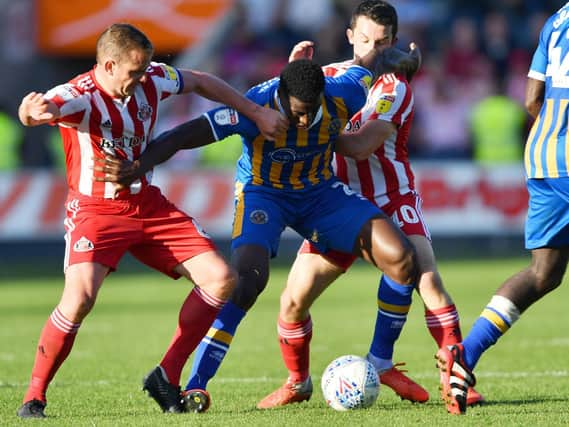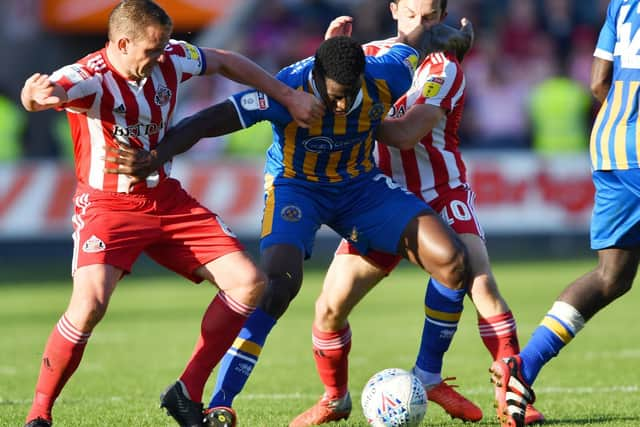Phil Smith's verdict: Why three changes reflected so well on Jack Ross and his Sunderland squad


And to an extent, they were.
Lynden Gooch has been tremendous this season, energetic and with a consistent output.


George Honeyman brings a surge of tenacity, as does Luke O’Nien.
Advertisement
Hide AdAdvertisement
Hide AdScratch the surface, however, and they were bolder calls than they looked. The performances of all three reflect well both on the manager and the squad.
Sunderland had been poor for 50 minutes but such was the attacking quality in their ranks, it would have been easy to let the game drift in the hope of a flash of inspiration.
Josh Maja may have been playing poorly and with an ankle concern, but on numerous occasions this season he has produced a goal from nowhere.
Likewise, Aiden McGeady was average but the ease with which he occasionally beat his marker meant it was a bold call to remove him and so early in the half.
Advertisement
Hide AdAdvertisement
Hide AdRoss knew what he wanted, however. A higher, more committed press and quicker movement towards goal with the ball.
The results were instant and credit to both players, who could think themselves unlucky not to start the game.
They have made Ross’ selection even tougher for the trip to Doncaster on Tuesday night.
Perhaps the third substitution was the most satisfying.
Ross would surely have been considering bringing on Alim Ozturk, particularly as Shrewsbury switched to a system with two strikers, launching the ball into the box.
The Turk had done a similar duty superbly at Bradford.
Advertisement
Hide AdAdvertisement
Hide AdBut it was Luke O'Nien who delivered his first major contribution in a Sunderland shirt and it was no fluke, either.
Ross felt there would be openings on the break for the 23-year-old and by removing his centre-forward (Jerome Sinclair had been excellent and tireless), Shrewsbury’s reshuffled defence were left unsure who to pick up on the counter, when to drop in and when to engage the runner.
Honeyman and O’Nien were a nuisance on and off the ball.
Supporters have quickly come to respect the logic and ruthlessness of Ross’ game management, a far cry from the way games have been left to drift in previous years.
Of course, previous managers would, with varying degrees of justification, say that they rarely had game-changing options to call upon and that Ross does is another reason to think this can be a successful season.
Advertisement
Hide AdAdvertisement
Hide AdA deep squad is a challenge but a major positive if kept united, and so far Ross has impressed on that front.
Regular communication is keeping players patient and hungry. Thus far, it is paying off with consistent contributions from the bench.
Of course, it was not always an uplifting, enjoyable afternoon for Sunderland.
Their first half performance was desperately flat and a better, more confident side may well have taken advantage.
Advertisement
Hide AdAdvertisement
Hide AdJack Ross has spoken regularly of the way Sunderland’s size and support has turned games into ‘cup ties’, with an intensity that lifts opponents beyond their normal level.
That Shrewsbury almost doubled their standard attendance suggested that this would be the same.
It wasn’t, really. Sunderland’s struggles were less about physicality and more about sloppiness and lethargy on the ball.
That is a concern, but in a 46-game season dips are unavoidable.
That Sunderland comfortably got through this one will be a source of reassurance.
13 games, 26 points.
Promotion pace.